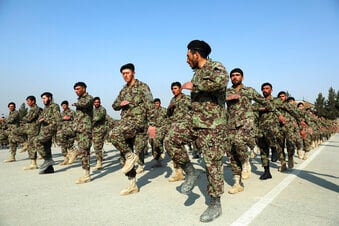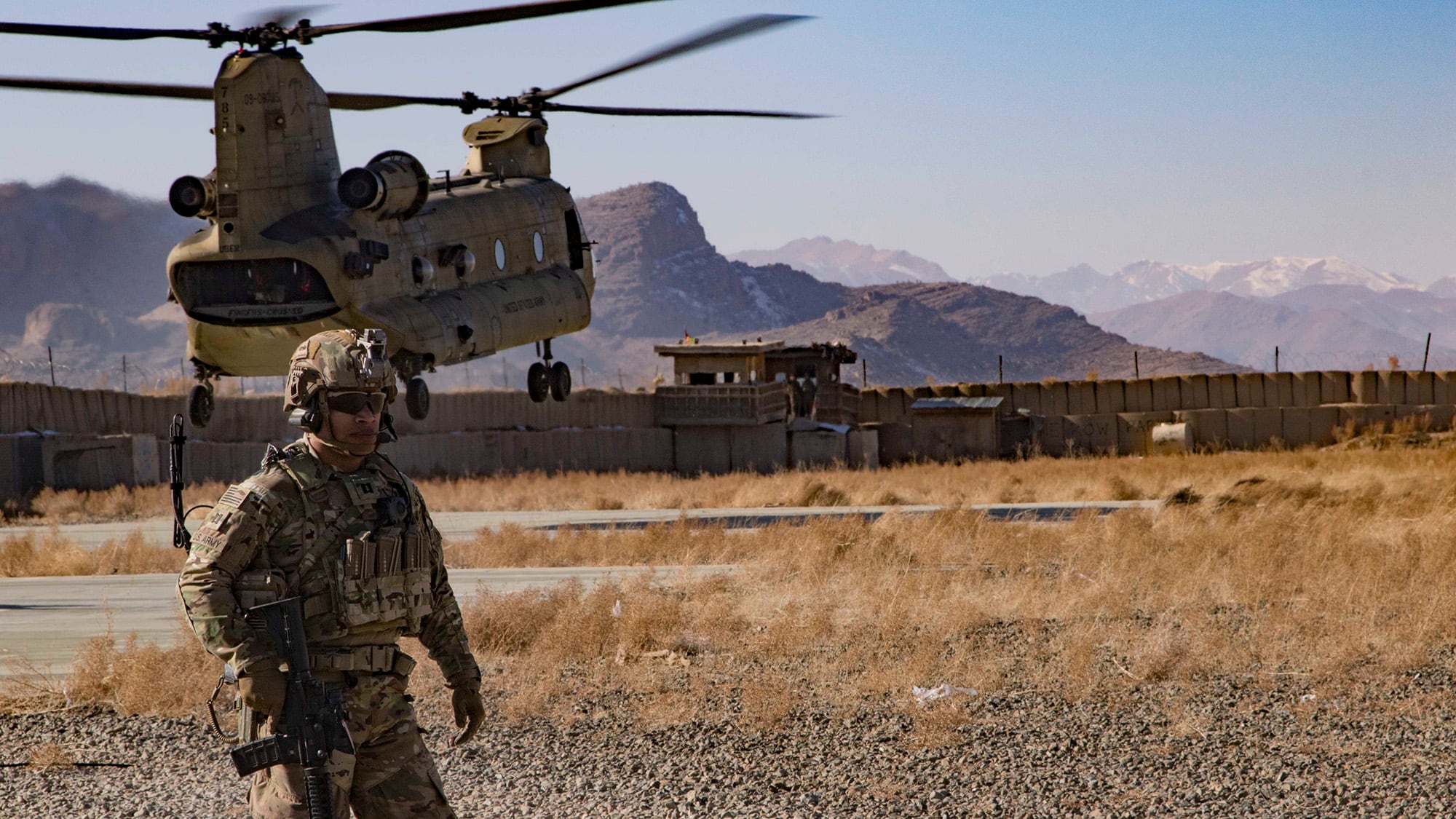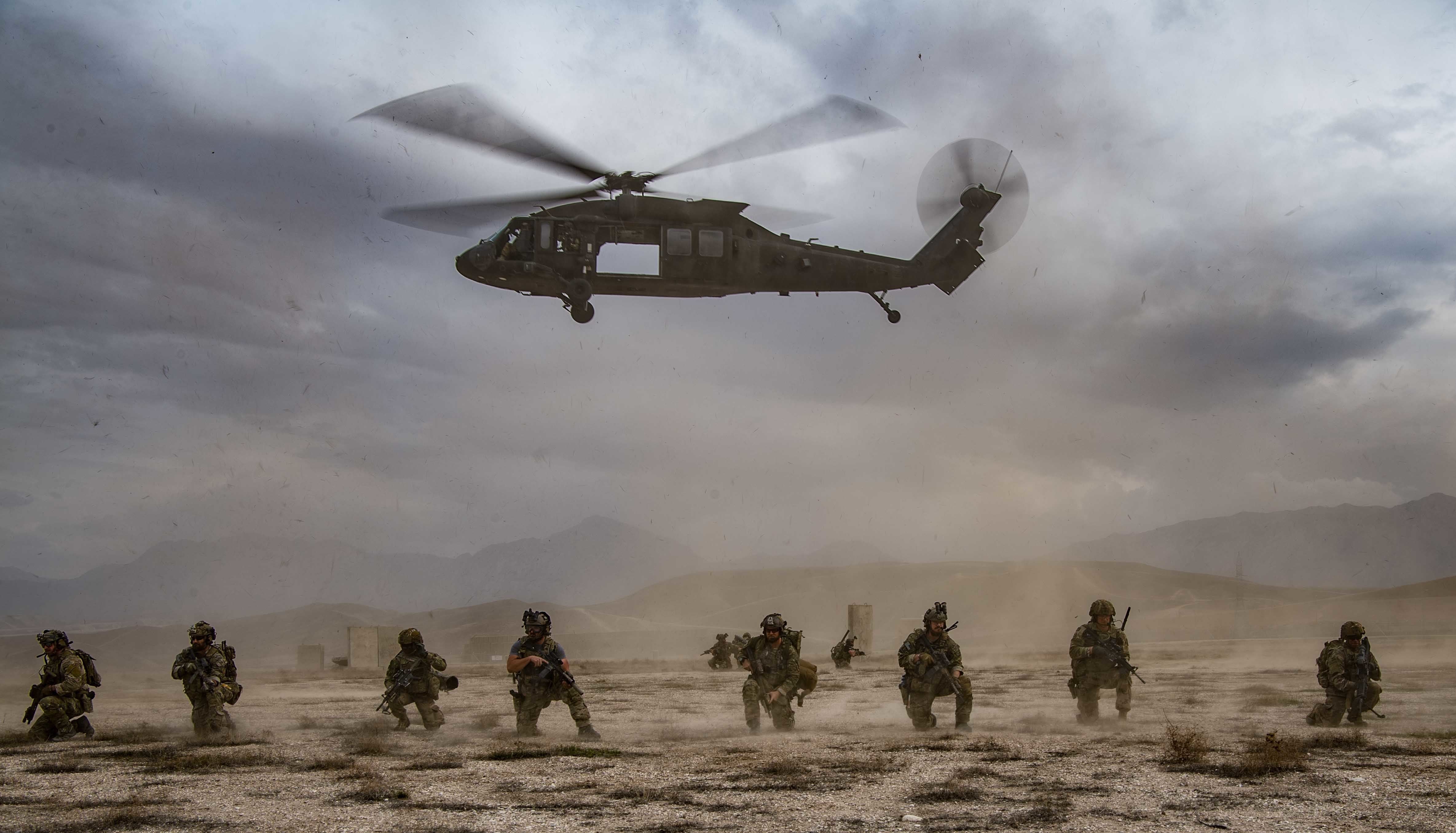With less than two months before a deadline to withdraw all U.S. troops from Afghanistan, local security forces there are unprepared to stand up on their own despite years of training and investment from foreign allies, a government watchdog warned lawmakers on Tuesday.
“Achieving our counterterrorism reconstruction objectives depends on a strong, stable, democratic and self-reliant Afghanistan. Unfortunately, Afghanistan is far from that reality,” said John Sopko, Special Inspector General for Afghanistan Reconstruction.
“Afghan security forces are nowhere near achieving self-sufficiency, as they cannot maintain their equipment, manage their supply chains or train new soldiers, pilots and policemen.”
The disturbing assessment comes after more than 19 years of U.S. military presence in Afghanistan to root out terrorism and stabilize local governments there. It also comes as the White House struggles with upcoming decisions on whether to fully end the military mission there or prolong the lengthy conflict.
More than 2,500 U.S. troops have died, and nearlly 21,000 wounded in support of operations in Afghanistan, according to Pentagon figures.
RELATED

About 2,500 American troops are still stationed in the country, down significantly in the last 18 months as former President Donald Trump pushed to completely end U.S. involvement in the war-torn country. (However, the New York Times recently reported that there are actually about 3,500 U.S. troops there, according to U.S., European and Afghan officials.)
That plan was supposed to include a peace deal between Afghan government officials and Taliban leaders, but Sopko said there is little evidence in recent months that the Taliban fighters are prepared to lay down their arms and take up diplomatic posts with the new government instead.
Under the deal negotiated by the Trump administration, all U.S. troops are scheduled to leave by May 1.
That leaves President Joe Biden with a difficult, looming decision on what to do about the remaining forces there, as well as how to handle the $143 billion in taxpayer funds already invested in Afghanistan reconstruction projects and 18,000 contractors still working there thanks to American money.
Sopko emphasized that his office has not taken a stance on withdrawal of U.S. forces, but warned lawmakers against seeing the choice as an easy one.
“If there is no peace agreement on May 1, the Afghan government will probably lose the capability of flying any of its aircraft within months,” he told members of the House Committee on Oversight and Government Reform during testimony on Tuesday. “To be blunt, the government would probably face collapse.
“If we also withdraw the funding, 80 percent of that (Afghan) government money comes from the United States and our donors, including salaries for the troops, money to buy fuel, money to buy bullets. So it’s a disaster for Afghanistan.”
Still, several lawmakers expressed frustration with the ongoing American military presence there and said they will push for a clean end to the war.
“We’ve done enough,” said Rep. Clay Higgins, R-La., “If we haven’t taught the Afghan people how to care for themselves in 20 years, what makes us think we can do it in two more?”
RELATED

Sopko said his office will release a “lessons learned” report later this spring on waste and fraud in Afghanistan reconstruction efforts, to help inform and improve future similar efforts.
Late last month, White House press secretary Jen Psaki said Biden was still committed to ending the U.S. military presence in Afghanistan and ensuring that the country will never again be a safe haven for terrorists like the ones who launched the Sept. 11 attack.
However, she added that there is a “ongoing discussion” on the next steps ahead for the American military in Afghanistan, and no final decisions have yet been reached.
Leo covers Congress, Veterans Affairs and the White House for Military Times. He has covered Washington, D.C. since 2004, focusing on military personnel and veterans policies. His work has earned numerous honors, including a 2009 Polk award, a 2010 National Headliner Award, the IAVA Leadership in Journalism award and the VFW News Media award.




